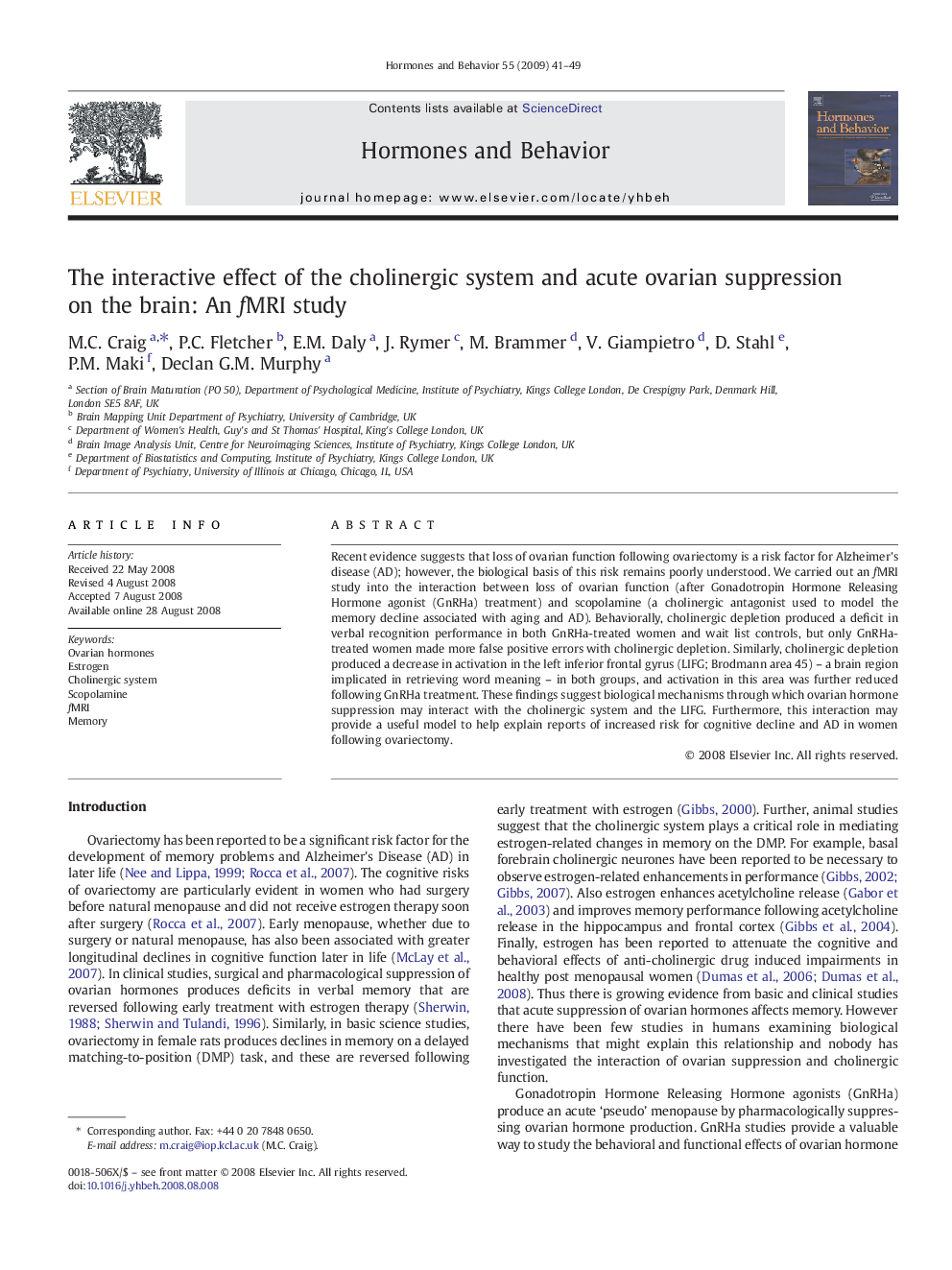| Article ID | Journal | Published Year | Pages | File Type |
|---|---|---|---|---|
| 323236 | Hormones and Behavior | 2009 | 9 Pages |
Recent evidence suggests that loss of ovarian function following ovariectomy is a risk factor for Alzheimer's disease (AD); however, the biological basis of this risk remains poorly understood. We carried out an fMRI study into the interaction between loss of ovarian function (after Gonadotropin Hormone Releasing Hormone agonist (GnRHa) treatment) and scopolamine (a cholinergic antagonist used to model the memory decline associated with aging and AD). Behaviorally, cholinergic depletion produced a deficit in verbal recognition performance in both GnRHa-treated women and wait list controls, but only GnRHa-treated women made more false positive errors with cholinergic depletion. Similarly, cholinergic depletion produced a decrease in activation in the left inferior frontal gyrus (LIFG; Brodmann area 45) – a brain region implicated in retrieving word meaning – in both groups, and activation in this area was further reduced following GnRHa treatment. These findings suggest biological mechanisms through which ovarian hormone suppression may interact with the cholinergic system and the LIFG. Furthermore, this interaction may provide a useful model to help explain reports of increased risk for cognitive decline and AD in women following ovariectomy.
